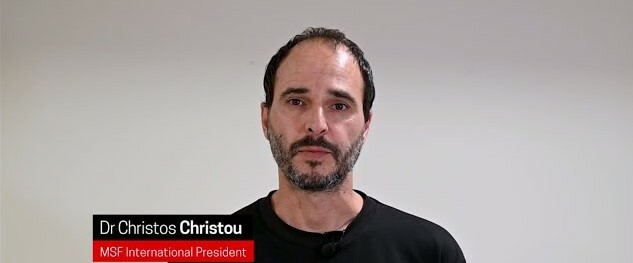Sudan is currently gripped by one of its worst crises in decades, marked by escalating suffering and a dire shortage of humanitarian aid.
Christos Christou, International President of Médecins Sans Frontières, has underscored the urgency of the situation, highlighting the organization’s efforts in responding to mass casualty events and emergencies.
“Sudan is currently embroiled in one of the most severe crises witnessed in decades. The country is plagued by widespread suffering, with the situation worsening day by day, yet the humanitarian response falls far short of what is needed. Over the past year, Médecins Sans Frontières has been at the forefront, responding to numerous mass casualty events and emergencies. Our efforts have included performing life-saving surgical procedures, aiding in childbirth – including emergency C-sections – and providing essential care to children in our paediatric wards and inpatient therapeutic feeding centers, all in an effort to save lives,” explained Dr. Christou at a press conference on Monday.
He went on to highlight the organization’s work in refugee camps and areas hosting displaced individuals, where they have worked to improve water and sanitation conditions, operated mobile clinics, and administered vaccinations to children. However, Dr. Christou expressed concern over the lack of presence of other humanitarian organizations in many of the regions where Médecins Sans Frontières operates. “Before the onset of conflict, numerous international organizations were actively responding across Sudan. Now, their absence is glaring. Given the magnitude of this crisis, such a void is incomprehensible and unacceptable. This cannot persist,” he emphasized.
Dr. Christou acknowledged Sudan’s challenges but stressed they’re not insurmountable. He highlighted the major obstacle: a systematic hindrance of humanitarian aid delivery by the Sudanese Armed Forces. This blockade, enforced for six months, obstructs the transport of medical supplies and personnel across frontlines into areas controlled by the Rapid Support Forces. Additionally, attempts to hinder the passage of humanitarian supplies from neighboring countries raise concerns.
“At many of our facilities, including the Turkish Hospital in Khartoum, stock levels have plummeted to just 20 percent. We’ve completely run out of artesunate, vital for treating malaria. This blockade severely hampers humanitarian aid delivery, greatly affecting millions in Sudan. Presently, only 20 to 30 percent of health facilities are functional, exacerbating the limited access to crucial treatment,” he explained.
Patients face violence-induced injuries, diseases, and malnutrition, while dwindling vaccine supplies fuel cholera and measles outbreaks. The crisis in Zamzam camp, North Darfur, epitomizes this. Since May 2023, the World Food Programme (WFP) hasn’t distributed food. In January, an assessment revealed 25 percent of screened children suffer from acute malnutrition, with seven percent severe cases, according to the MSF president.
Dr. Christou emphasized that 40 percent of pregnant and breastfeeding women were grappling with malnutrition, and the camp witnessed a devastating mortality rate of 2.5 deaths per 10,000 people per day. “These figures are deeply concerning, and we anticipate the situation to worsen. Additionally, there are alarming predictions regarding food insecurity across the rest of the country.”
Dr. Christou provided an update on the crisis, stressing the urgent need for a coordinated humanitarian response in North Darfur led by the UN. He called for the immediate resumption of food distribution, cash assistance for purchasing food, and the return of health providers. Despite their pleas, no assistance has arrived, leaving their efforts largely isolated even two months later.
“This situation is unacceptable, and the extent of international neglect is appalling. Throughout Sudan, women are losing their lives due to pregnancy and childbirth complications, and patients with chronic illnesses are perishing as their medications run out. All of this suffering could be prevented if humanitarian actors scaled up their efforts and had secure access,” he stressed.
Dr. Christou highlighted the urgent need for increased support from the UN and humanitarian organizations in Sudan. Despite operating in precarious conditions, Médecins Sans Frontières continues to provide healthcare.
Dr. Christou urged adherence to International Humanitarian Law and the Jeddah accord, emphasizing the need to lift blockades, open borders, and facilitate access. He implored the UN to use its influence to ensure all parties fulfill their obligations and called for increased funding from donors to prevent further crisis escalation.




